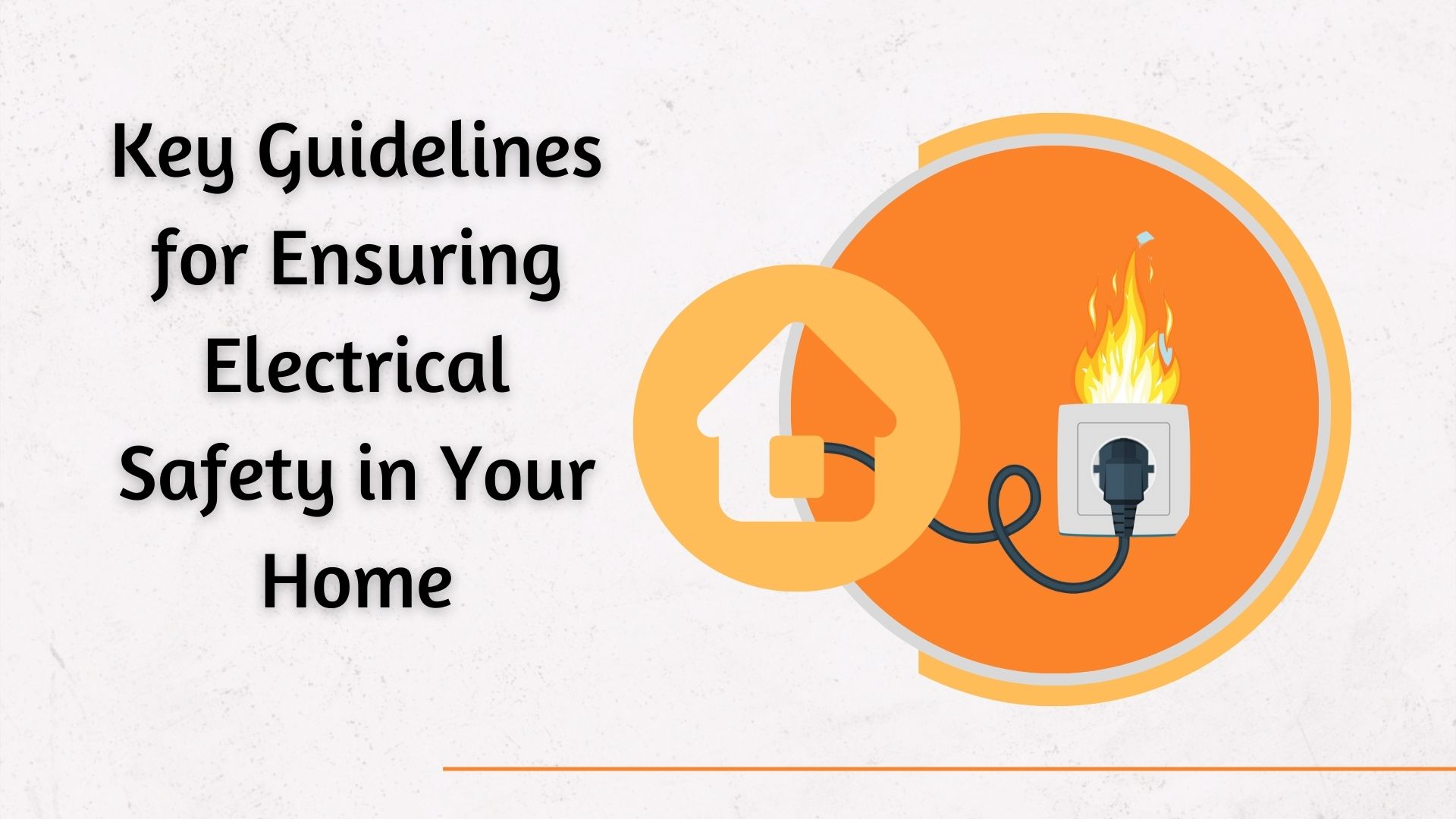Electrical safety is a vital topic for every homeowner. Electricity is a powerful and useful resource, but it can also pose serious hazards if not handled properly. Electrical mishaps can result in burns, injuries, and even fatalities. Therefore, it is important to follow some basic electrical safety rules for your home to protect yourself, your family, and your property.
What is electrical safety?
Electrical safety is the practice of preventing and reducing the risk of electric shock, fire, or explosion caused by electricity. Electricity can be dangerous if not handled properly, as it can cause burns, damage to organs, and even death. Electrical safety involves following some basic rules and precautions when working with or near electrical equipment, wires, outlets, or appliances.
Electrical Safety Guidelines for Your Home?
Here are some of the electrical safety guidelines that you should follow at your home:
1) Hire a professional electrician for any electrical work: Electrical work is not a DIY task. It requires proper knowledge, training, and equipment to do it safely and correctly. A professional electrician can ensure that your electrical system meets the codes and standards and can identify and fix any potential problems. Never attempt to fix or install electrical components by yourself, as you may risk electrocution or fire.
2) Keep water away from electrical components: Water and electricity are a deadly combination. Water can conduct electricity and cause electric shock or electrocution. Always keep water away from electrical components such as outlets, switches, and appliances. Make sure that your skin is not wet or sweaty when handling electricity. Avoid using electrical appliances in wet areas such as bathrooms, kitchens, or outdoors.
3) Don’t overload your electrical outlets: Overloading electrical outlets is a common mistake that can cause fires and electric shocks. Avoid using multiple power strips or extension cords for appliances. To avoid overloading the power supply, use only one appliance that generates heat per outlet. Spread out the electrical consumption among different outlets and circuits. Make sure to disconnect any appliances or electronics that are idle.
4) Check your electrical cords and plugs regularly: Electrical cords and plugs can wear out over time, leading to frayed wires, loose connections, or exposed wires that can cause electric shock or fire. Check your electrical cords and plugs regularly for signs of damage or wear and tear. To prevent fire hazards, inspect your cords and plugs regularly for any signs of wear and tear. If you locate any, replace them as quickly as feasible. Do not let your cords and plugs get squashed by furniture or carpets, which can make them overheat.
5) Use the right light bulbs for your fixtures: Light bulbs have different watts and sizes that are suitable for different fixtures. Using the wrong light bulb can cause overheating, melting, or fire. Always check the label on your fixture to see what type of light bulb it requires and follow the manufacturer’s instructions. When changing a light bulb, always turn off the power supply to the fixture and wait for it to cool down before touching it.
These are some of the electrical safety rules that you should follow at your home to prevent electrical hazards. By following these rules, you can enjoy the benefits of electricity without compromising your safety.
What causes electrical fires in homes and what precautions should be taken?
Electrical fires may be dangerous in any household. They can start suddenly and spread quickly, causing damage, injury, and even death.
1. Faulty or outdated electrical outlets and wiring:
One of the main causes of electrical fires is faulty or outdated electrical outlets and wiring. Outlets that are loose, worn out, or not properly grounded can create sparks or overheat, igniting nearby flammable materials. Wiring that is old, damaged, or overloaded can also cause short circuits or overheating, leading to a fire.
To prevent this, you should inspect your outlets and wiring regularly and replace them if they show any signs of wear and tear. You should also avoid plugging too many devices into one outlet or using extension cords for long periods of time. If you notice any flickering lights, burning smells, or sparks from your outlets or switches, call a licensed electrician immediately.
2. Old or defective appliances:
Another common cause of electrical fires is old or defective appliances. Appliances that have frayed cords, loose plugs, or faulty switches can draw too much power or generate excessive heat, causing a fire. Appliances that are not designed for the voltage or frequency of your home’s electrical system can also pose a fire risk.
Also Read- How to Avoid Mistakes of Selecting Electrical Wires for Your House
To prevent this, you should check your appliances regularly and replace them if they are old, damaged, or malfunctioning. You should also follow the manufacturer’s instructions for using and maintaining your appliances and avoid using adapters or converters that are not compatible with your appliances.
3. Improper use of heating devices:
Heating devices such as space heaters, electric blankets, and hair dryers can also cause electrical fires if they are used improperly. Heating devices can overheat or ignite flammable materials if they are left unattended, placed too close to combustible objects, or covered with fabrics.
To prevent this, you should always supervise your heating devices and turn them off when not in use. You should also keep them at least three feet away from anything that can burn and never place them on carpets, beds, or furniture. You should also avoid using heating devices with damaged cords or plugs.
4. Lightning strikes
Lightning strikes can also cause electrical fires in homes by sending a powerful surge of electricity through the wiring and appliances. Lightning can damage the electrical system, start fires in the walls or attic or ignite nearby trees or power lines.
To prevent this, you should install a lightning protection system in your home that consists of a lightning rod, a grounding wire, and a surge protector. A lightning protection system can divert the lightning away from your home and protect your electrical system and appliances from damage.
5. Human error
Finally, human error can also cause electrical fires in homes by creating unsafe conditions or mishandling electrical equipment. Some examples of human error include:
- Leaving candles, matches, or lighters unattended
- Smoking indoors
- Spilling liquids on electrical devices
- Using faulty or counterfeit chargers
- Cutting or piercing wires
- Tampering with electrical panels or meters
To prevent this, you should always be careful and responsible when dealing with electricity and fire. You should also educate yourself and your family about fire safety and have a fire escape plan in case of emergency.
Conclusion
Electrical safety in your home is not something to be taken lightly. It can prevent fires, shocks, injuries, and even deaths. By following the key guidelines, we discussed in this blog post, such as inspecting your wiring, using proper outlets and appliances, avoiding overloading circuits and extension cords, and installing smoke detectors, you can ensure a safe and comfortable living environment for yourself and your family.
For more info contact leading Electrical wire manufacturer in Delhi





